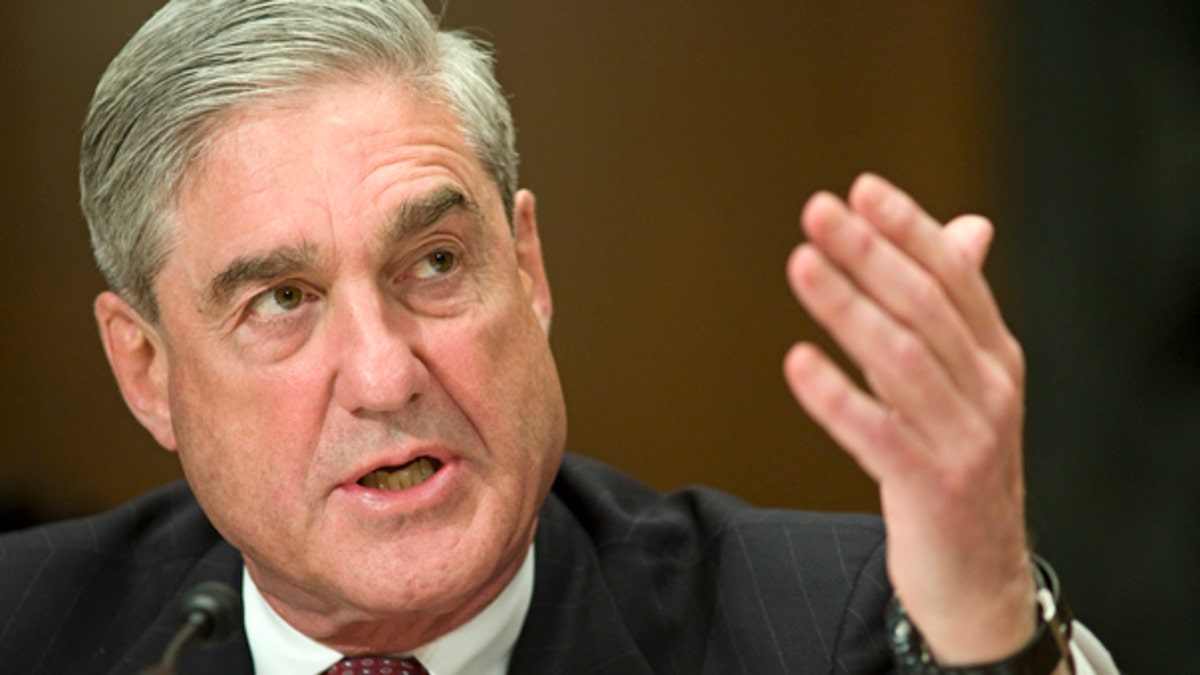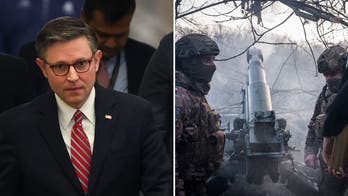
FBI Director Robert Mueller (AP)
The FBI used weak facts to open investigations of individuals and advocacy groups, improperly retained some information about the subjects and wrongly characterized some nonviolent disobedience as acts of terrorism, the FBI's top watchdog said Monday.
In a report released by the Office of Inspector General that spanned investigations between 2001-2006, Inspector General Glenn Fine wrote that five liberal groups and individuals -- the Thomas Merton Center, Greenpeace, People for the Ethical Treatment of Animals, the Catholic Worker and an individual described as a Quaker peace activist -- were not targeted because of the exercise of their First Amendment rights, but at least some were wrongly watch-listed as a result of ongoing and unjustified probes.
Being added to a federal watch-list means a person could be deterred from travel and tracked by law enforcement.
The FBI also misled Director Robert Mueller into giving inaccurate information to Congress and the public when it claimed a possible terrorism link to justify surveilling a 2002 anti-war rally in Pittsburgh led by the Thomas Merton Center, the inspector general concluded.
In the case of the Thomas Merton Center, a new field agent in Pittsburgh had been assigned to attend the post-Thanksgiving Day event and filed a memo on it that included a photo of a woman seemingly from the Middle East. The agent did not describe the assignment as a terrorist hunt and the memo did not identify any subjects as such.
But the memo resulted in Mueller falsely testifying to the Senate in 2006 that the FBI had been tracking a possible terrorist who was identified as being at the protest.
Fine concluded that the documents cited by Mueller were the result of a "make work" assignment for a new agent. Though not outside the legal boundaries of FBI activities, it was "an ill-conceived project on a slow work day."
The inspector general also concluded that the FBI has been able to classify "matters as domestic terrorism that actually are trespassing or vandalism." In the case of the inaccurate statements passed along in the agent's memo, officials ended up stating "a stronger justification for the surveillance" than was necessary.
As for the Greenpeace case, the IG concluded that the FBI was right to conduct a probe into concerns about potential destruction of an energy facility in Alaska, but a separate probe of Greenpeace members involved in protests outside Exxon and Kimberly-Clark in Texas had little or no basis for suspicion of violation of a federal crime.
The OIG also found that the FBI kept the investigation open well beyond the dates of the suspected planned disruption and "beyond the point at which its underlying justification" existed. Greenpeace members were put on a federal watch list.
As for the Catholic Worker members, the IG said peaceful trespass on a military facility is not generally an FBI matter, especially since the FBI is not in the practice of "targeting lawful civil disobedience."
The IG called for several recommendations, including
- a review of activities relating to the Merton Center to determine whether administrative or other action is warranted for any individuals connected to the probe;
- sourcing and identification of facts given to Congress and in press releases;
- requirements that federal criminal statute be cited when opening an inquiry of advocacy groups exercising their First Amendment rights;
- modification of policies on retaining information from public events that are not related to potential criminal or terrorist activity; and
- guidance on classifying cases involving First Amendment issues as potential acts of terrorism.
The FBI agreed to the recommendations, the inspector general said.




